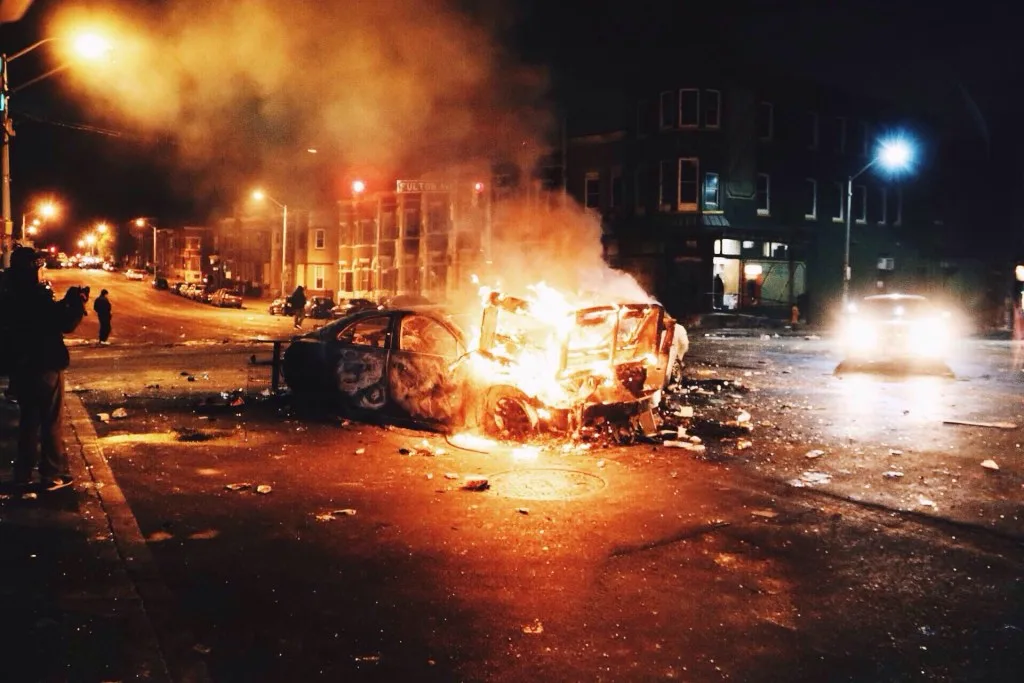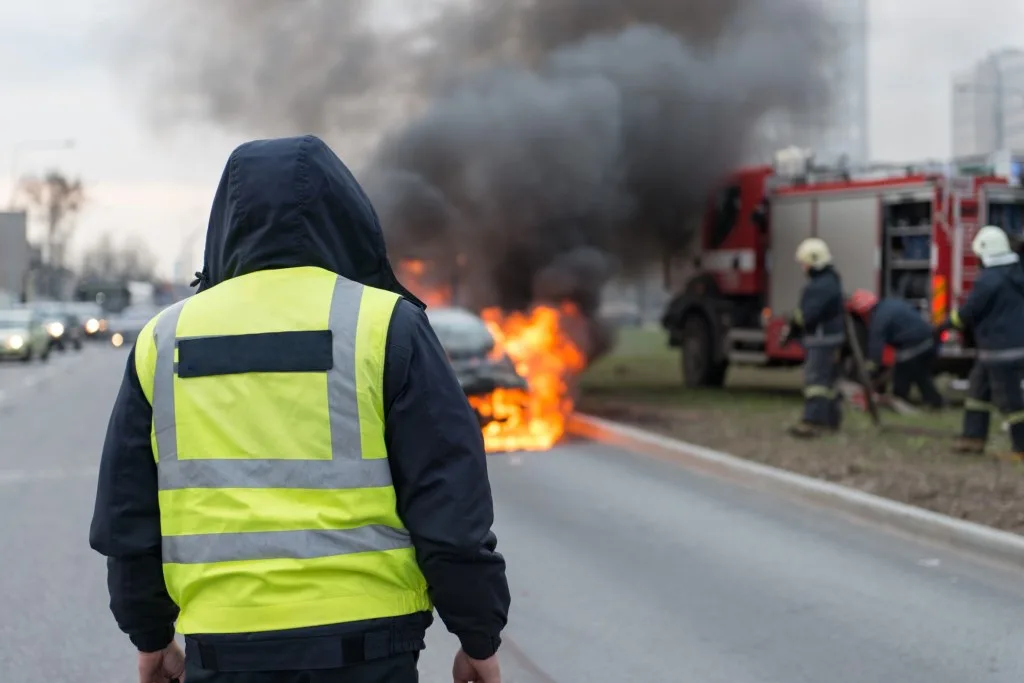A fire in an RV almost always ends with losing the rig and its contents. Fires in an RV can spread quickly and leave charred remains in a matter of minutes. While you might think your RV is at the most significant risk of a fire while you’re towing it, that’s not always the case. Many camper fires happen at a campsite when something doesn’t go as planned.
We compiled a list of five ways campers catch fire because we want you to stay safe while camping. Let’s look at what you should watch for while RVing.
How Often Do Campers Catch Fire?
According to the National Fire Protection Association (NFPA), there are nearly 2000 RV fires annually. Sadly, there is an average of 20 deaths yearly from RV fires. Many of these deaths are in RVs that do not have working fire safety equipment.
With the massive increase in RV sales and many first-time RVers, RV fires could also increase.
What Should You Do if There Is a Fire in Your Camper?
If you experience a fire in your RV, you should make a swift decision. If the fire is small, grab the nearest fire extinguisher and attempt to put out the fire. However, you have little time to take action before a small fire gets out of control. The construction materials can cause a fire to spread in a matter of seconds, and you’ll need to vacate the RV immediately.
If the fire is too large to attempt to extinguish, grab your loved ones and get out. Grab any critical items that are within reach before exiting the RV.
Once out of the RV, do not attempt to go back inside for other things. Material possessions are replaceable; your life is not. There are no material possessions that are worth risking your life to save.

5 Ways Your Camper Can Catch on Fire
You can stay safe while RVing if you keep an eye on these five common ways campers catch fire. Always ensure you have working smoke and carbon monoxide detectors. These devices can give you and your loved ones precious seconds that could mean the difference between life and death.
Faulty Wiring
Campers are full of internal wiring and hundreds of electrical connections. A loose connection or overloaded electrical wire can generate high heat and ignite. If you’re lucky, a burning smell will appear, and you’ll exit your RV safely. Many of these fires occur behind walls or in an RV’s underbelly, making them nearly impossible to extinguish.
You should inspect your electrical system if you experience even the most minor issues. Faulty lights, outlets, and switches can be an indication that there is a problem. Please don’t take these issues lightly; have a trained professional inspect them as soon as possible.
Rodent Nests
If your camper has been stationary for some time, mice and other rodents may have made it their home. They’ll use almost anything to create nests, including material in exhausts for propane water heaters or refrigerators. A fire can occur when you crank on your propane system and expose these nests to the propane flame.
It would be best to inspect your exhaust outlets before every camping season. You can buy metal exhaust covers that protect your pipes from mice and other critters. Discontinue using your propane system immediately if you smell something burning when you turn it on.
Pro Tip: Use these 7 Ways to Keep Pests Out Of Your RV to make sure you don’t get a surprise rodent nest.

Cooking
Cooking and other unintentional acts cause 57% of all RV fires. No matter how good of a chef, cooking in an RV requires your full attention. Cooking in an RV typically requires a chef to work with minimal counter space and close to items that are often flammable.
One way to protect your RV from a fire is to do all of your cooking outside. Some RVs have external connections for propane grills that can help keep your RV safe from fires, odor, or heat from cooking outside your camper.
Lack of Maintenance
One of the things many RVers fail to do is maintain their RV. Approximately 27% of RV fires are the result of equipment failures. Maintaining your tires, brakes, and axles is a part of standard RV ownership. If you’re not following an RV’s routine maintenance schedule, you’re increasing the chance of an RV fire.
Even if you are sticking to your RV’s maintenance schedule, you should regularly inspect your rig. Look for any signs of abnormal wear and tear or distinctive sounds. Don’t leave maintenance items until tomorrow because tomorrow quickly turns into months as other things take priority.
Refrigerators
Of the nearly 2000 fires reported by the NFPA, 260 (14%) of the fires were direct results of the refrigerator. These propane appliances are prone to issues, especially in older units, which can overheat or leak. For years, manufacturers installed defective refrigerators in thousands of RVs, becoming the primary reason for these fires. If you have a propane fridge, you should regularly inspect it for leaks and obvious signs of issues.
Pro Tip: We uncovered if keeping your refrigerator on while driving your RV is dangerous and can cause a fire.

How Do You Prevent a Camper Fire?
The best way to prevent a camper fire is to minimize your risk. Stay on top of maintenance, inspect propane appliances regularly, and pay attention when cooking or doing any activity involving an open flame inside your camper.
You must take fire safety seriously and regularly inspect your safety equipment. Having smoke and carbon monoxide detectors is excellent, but ensuring they work properly is essential. They only provide a false sense of safety if they’re not working.
Stay Safe in Your Camper
You want to stay safe while you and your loved ones are camping. Ensure you communicate with everyone what they should do if a fire occurs. Have a plan and teach everyone how to use fire extinguishers and other safety equipment correctly.
Doing so can save lives and give your RV the best chance during a camper fire.
Have you checked your smoke and carbon monoxide detectors lately? Tell us in the comments!
Discover the Best Free Camping Across the USA
To be honest with you, we hate paying for camping. There are so many free campsites in America (with complete privacy).
You should give it a try!
As a matter of fact, these free campsites are yours. Every time you pay federal taxes, you’re contributing to these lands.
Become a FREE CAMPING INSIDER and join the 100,000 campers that love to score the best site!
We’ll send you the 50 Best Free Campsites in the USA (one per state). Access the list by submitting your email below: